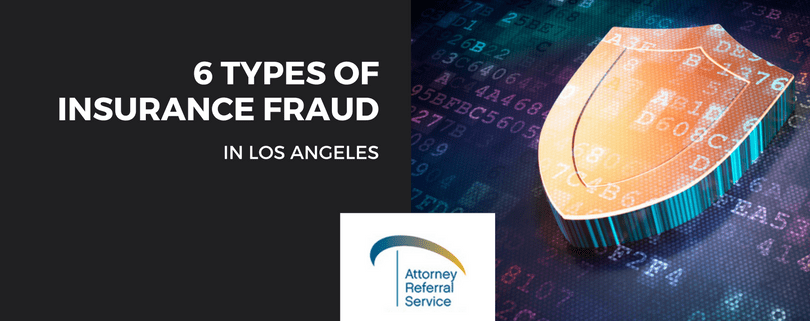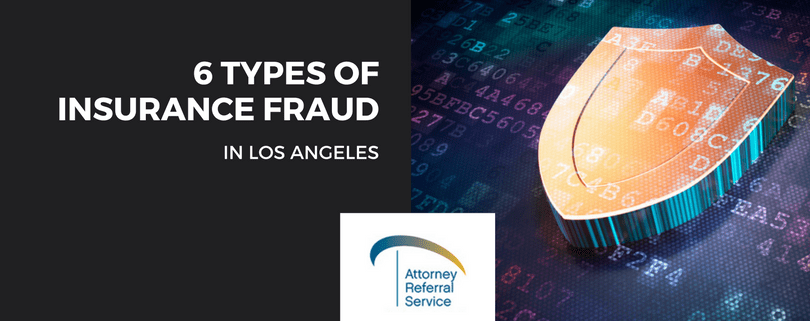6 Types of Insurance Fraud and Why You Need Protection

Insurance fraud is everywhere. Today, we’re taking a closer look at the common types of insurance fraud so you understand why hiring an insurance fraud attorney in Los Angeles can help protect you from paying for fraudulent claims.
Insurance fraud is everywhere.
It’s in the auto industry, in healthcare, home repairs, in the workplace, and more. It is a major financial burden to society. Costs from insurance fraud, with bogus claims and related costs, amount to billions of dollars every year. Since 2007, fraudulent claims in America have increased each year in almost every category.
Fraud drives up insurance costs for everyone as well as general prices of things like groceries and retail goods when businesses are forced to pass on higher insurance costs. It’s almost becoming a way of life.
Here is a look at some of the more common forms of insurance fraud.
Workers’ Compensation Insurance Fraud
Workers’ compensation insurance protects employees who are hurt on the job, paying for lost wages, medical and other expenses while the worker recovers.A small number of workers take advantage of this benefit and use it for personal profit, committing workers’ compensation fraud.
Acts of fraud include making false statements to get benefits, concealing information to get benefits, inflating costs, lying about how an injury occurred or making an exaggerated claim.
Protecting yourself against false claims for workers’ compensation involves careful documentation and reporting. You should get a written statement from the claimant describing his or her injuries, get witness statements, and document any discrepancies.
Send the information to your insurance provider and note if there might be issues with the worker who is submitting the claim.
General liability Insurance Fraud
General liability is a broad form of insurance similar in some ways to worker’s compensation fraud. It covers premises liability which provides protection to guests on your property (not employees) from things like slips and falls.It also covers products liability and completed operations.
You can help protect yourself from these claims through regular inspections of your property for potential hazards and written records of the dates and times of the inspections. It is also good to be vigilant of safety conditions and any possible obstacles that could result in injury.
Property and Casualty Fraud
Property and casualty insurance fraud can be committed by all kinds of individuals including insurance applicants, third-party claimants, policyholders, and others who provide services to claimants.
Common frauds include planned and prearranged auto theft, arson, burglary, identity theft, theft of motorcycles and marine vessels, staged auto accidents, and as noted above, slips and falls, and workers’ compensation.
There are some ways you can protect yourself from this kind of fraud. Always check bills for accuracy and never sign blank insurance claim forms.
Be cautious of door-to-door insurance sales and any insurance prices that seem too good to be true.
Do not follow the advice of strangers on who to contact for medical or legal advice.
Make sure agents and companies are licensed. You can check with your state insurance department for verification.
Auto Insurance Fraud
There are a number of auto insurance fraud schemes. Here are a few of them.
- Premium embezzlement
You give an insurance agent a down payment on insurance and he keeps it, leaving you without insurance. To verify that the policy was received and in force, ask for a copy of it to be sent to you within a week or so. If you don’t receive it, contact the insurance company directly (not the agent).
- Staged accidents
A car can suddenly pull in front of you and force you to follow too closely. This can be a setup for a staged accident. Scammers will blame you for the accident and may try to settle with you out of pocket or will report it to the police as your fault.
To prevent such a situation, be aware of unusual traffic activity that puts you at a sudden disadvantage. Stay in your lane and follow the rules of the road, especially “right of way” procedures.
- Inflated claims
When people pad their legitimate claims, the costs of insurance go up for everyone. The act is called opportunistic fraud. Insurance companies try to verify the validity of claims, but some fraudulent claims always get through.
When you make an insurance claim, do not claim more damage than there really is because it can be a felony crime.
- Collision repair fraud
If you need an auto repair shop, try to find one with a good reputation based on recommendations from family or friends you trust. You can also get a recommendation of a few potential repair shops from your insurance provider.
A disreputable repair shop will profit unfairly by reporting the cost of new factory parts to the insurance company while using old or subpar parts and materials.
By using a good repair shop, you will not only protect against insurance fraud but ensure you are getting quality parts and service. As for paperwork, make sure you get a written damage report from the repair shop instead of just a written estimate of cost.
- False vehicle thefts
Vehicles are stolen all the time and valid claims are made. But reports of stolen vehicles can also be false. This sometimes happens when someone gets behind in his or her payments and makes a report that the vehicle has been stolen in an attempt to get an insurance payoff.
With similar intentions, crime rings purchase full-coverage policies on vehicles they buy with the intention of later “losing” them. The goal is to use the vehicles for parts or resell them on the black market or trade them for drugs.
Medicare Fraud
In Medicare fraud, con artists try to get your Medicare number or personal information so they can steal your identity. You should guard your Medicare card like you do with your credit cards.
Give your Medicare number only to people you trust should have it. Representatives of Medicare or medical professionals who need your personal information should always ask your permission for your number. Usually, the permission is granted personally or in writing, never over the phone or Internet. Note that there are new Medicare cards coming in 2018.
Home Repair and Insurance Fraud
Home repair and insurance fraud can occur if you are dealing with an unlicensed contractor. Always check the status of the contractor’s license and registration to make sure it is valid and current. For larger projects, the contractor should have both a Construction Supervisor License and a Home Improvement Contractor Registration.
There are some exceptions to this requirement including HVAC installers, landscapers, painters, wall and floor coverings, fencing, above ground pools, driveways and other specialists who operate within a defined realm of expertise.
In any event, for any size project, always ask for a written estimate and detailed costs so you understand the scope of the project and all related costs. Make sure all the appropriate permits are obtained.
Although there are several laws governing all kinds of insurance activities, the best way to protect yourself is with common sense and good record keeping. If you do sense trouble in this field, consult a good insurance attorney to be safe.
Are you in search for a certified attorney to represent you?
Let us help you find one today!


